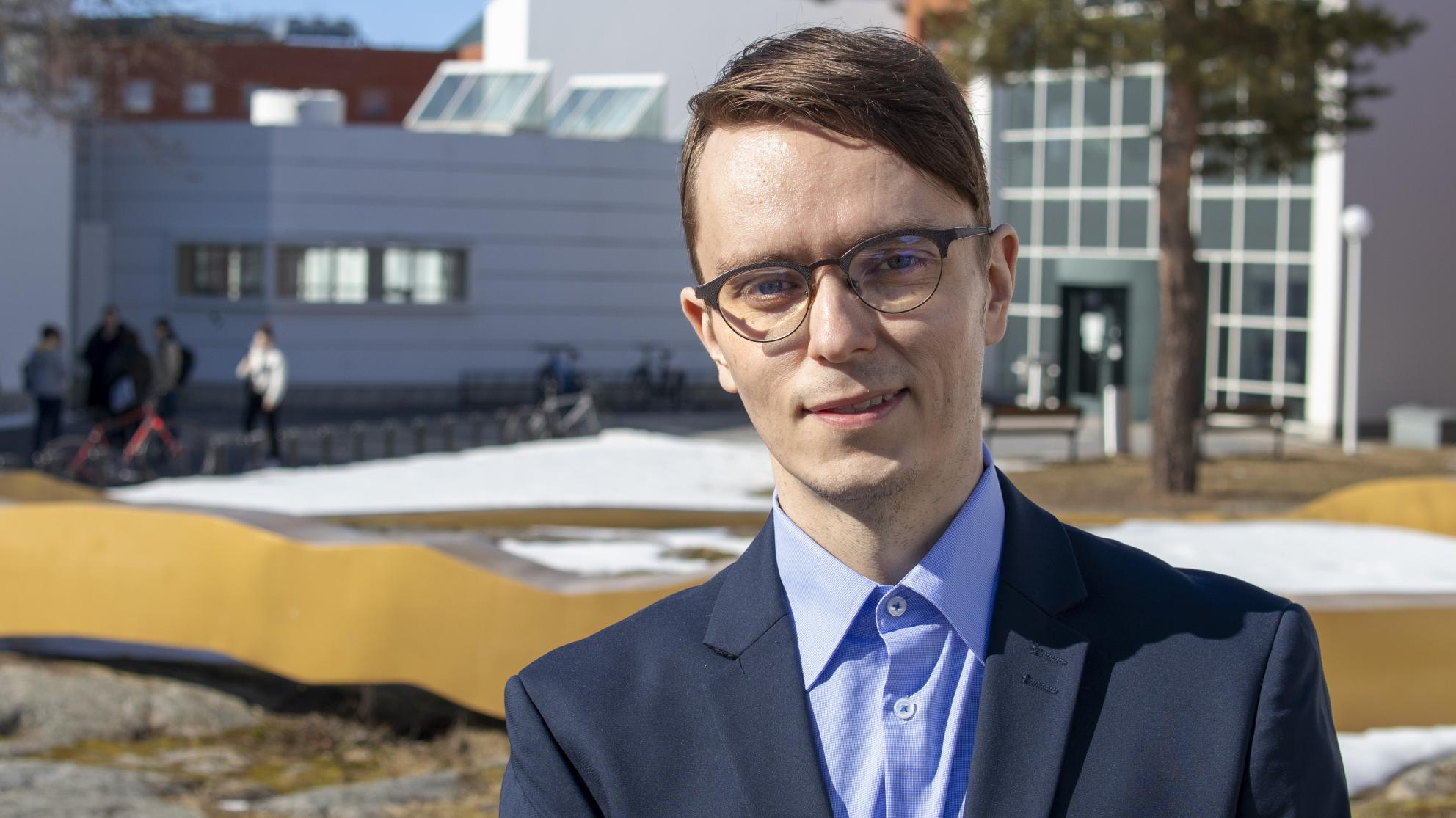Dissertation: Utopia-likeness that utilises the energy of true utopias activates regional development

Mikko Karhu’s doctoral dissertation examines the interpretation and uses of utopias in regional development. Classics of utopian and dystopian literature, such as T. More’s Utopia, A. Huxley’s Brave New World and G. Orwell’s Nineteen Eighty-Four were used as material in the dissertation, alongside expert interviewsin regional development.
According to Karhu, regional development includes both true utopias and utopia-likeness. Both emanate from people’s need to dream of something better. Today, regions are being developed in a pluralistic and practical manner. Implementing large-scale idealism has become difficult. It has been overtaken by more practical utopia-likeness.
Utopia-likeness is idealisation included in development and control. It involves state authorities, local government organisations, businesses, organisations, residents or other operators participating in regional development conveying a desirable or avoidable vision of the future for the region.
– Utopia-like discourse may come across as strongly reliant on the ideal future. This is a good thing when various parties are encouraged to participate in the implementation of shared goals, says Karhu.
According to Karhu, visions of the future and even institutions include utopia-likeness.
– Space settlement and other ultra-futuristic visions will not be feasible for a long time on the scale that technological utopians claim. On the other hand, the ideological idea of established institutions, such as national states, of a united nation that shares the same values and goals can never be fully realised either, says Karhu.
Despite their dangers, true utopias fascinate
As a contrast to utopia-likeness, ideal utopias and ideological utopias are considered true utopias. Ideal utopia is a fictional place detached from reality that is described in utopian and dystopian literature.
Ideological utopia is an implicit and often enforced pursuit of an ideology. Ideology utopias aim at large-scale, even totalitarian changes that can lead to a great deal of misery. The current restriction of the freedom of speech and the sovereignty of the ruler in Russia bear a strikingly close resemblance to the Ministry of Truth, Thought Police and Big Brother in Orwell’s novel.
According to Mikko Karhu, true utopias will never fully disappear from regional development. Ideal utopias may be useful when speculating about distant futures and also in innovation processes. On the other hand, an unquestioned operating model enforced from above, such as blind belief in artificial intelligence or continuous economic growth as a guarantor of happiness, can be concerning if it grows into an ideological utopia.
– In polyphonic regional development, it is preferrable to use utopianism as a means of challenging traditional ways of thinking rather than as design aiming for perfection, Karhu says.
Doctoral dissertation
Karhu, Mikko (2022) Utopiat ja utopiankaltaisuus aluekehittämisessä. Acta Wasaensia 483. Väitöskirja /Doctoral dissertation. Vaasan yliopisto / University of Vaasa.
Publication pdf: https://urn.fi/URN:ISBN:978-952-395-016-0
Public defence
The public examination of Lic.Sc.(admin.) Mikko Karhu’s doctoral dissertation in Regional Science "Utopiat ja utopiankaltaisuus aluekehittämisessä" will be held on Friday 22.4.2022 at 12 at the University of Vaasa in Tritonia building, Auditorium Nissi.
Participation in the defence is possible also online: https://uwasa.zoom.us/j/65837037027?pwd=TVdIOUJVOExiUktVYU5RbzgwNSt0QT09
Password: 148597
Doc., PhD Päivi Rannila (Tampere University) will act as an opponent and University Lecturer, PhD Ilkka Luoto as custos. The defence will be held in Finnish.
Further information
Mikko Karhu, tel +358 50 3279 597, mikko.karhu (@) uwasa.fi
Mikko Karhu was born in 1986 in Isokyrö and graduated from Kyrönmaa Upper Secondary School in 2005. He graduated as a Master of Science in Administrative Sciences from the University of Vaasa in 2010 and as a Licentiate in 2017.
During his career, he has worked as a planner at the Ostrobothnia Centre for Economic Development, Transport and the Environment, as a project manager at SEEK, and as a fellowship researcher at the University of Vaasa. He is currently working as a university lecturer at the University of Vaasa School of Management.